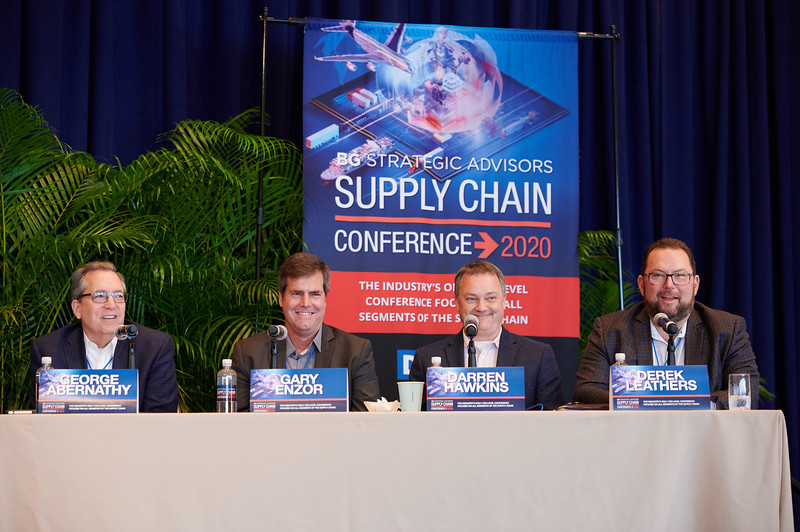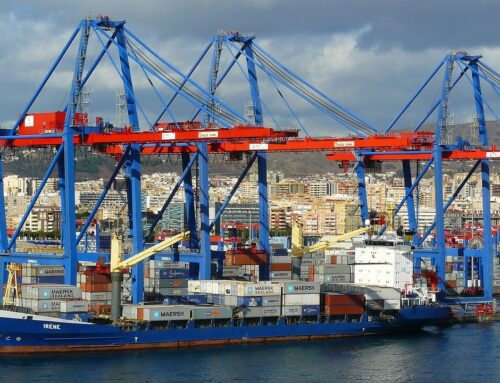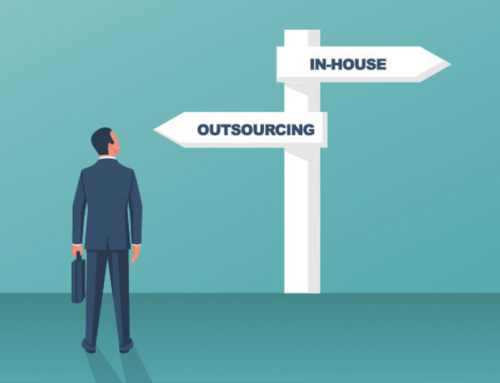
View Full Article Here – FreightWaves
The majority of transportation and logistics executives expect their businesses to grow by more than 10% in 2020 and say they are “very likely” to consider a merger, acquisition, investment or other transaction in 2020, according to survey data gathered at BGSA’s annual conference.
Last week at The Breakers in West Palm Beach, Florida, BGSA mergers and acquisitions adviser and Cambridge Capital venture capitalist Ben Gordon hosted supply chain leaders at his advisory firm’s annual conference.
BGSA’s conference is closed to the press to foster a more frank atmosphere among the 250 guests, the vast majority of whom were CEOs and presidents, but Gordon spoke to FreightWaves by phone about what he learned.
One of the highlights of the event was undoubtedly XPO Logistics (NYSE: XPO) CEO Brad Jacobs’ town-hall discussion, when he fielded unscreened questions from the audience about a wide variety of topics, including the potential sale of multiple XPO business units.
“Brad was very candid in an unscripted Q&A session with the audience,” Gordon said. “He offered very powerful personal stories about his leadership journey and what he’s learned and what he’s looked for, and discussed his rationale for pursuing the divestitures. The insight was more about understanding his thought process on the carve-outs and his outlook for what he expects will happen.”
Jacobs had spoken previously in public about XPO’s “conglomerate discount” — the idea that shares of XPO are not correctly priced by the market in part because investors have a hard time judging the value of all of its complex moving parts, which include international freight forwarding, freight brokerage, intermodal, final mile, warehousing and less-than-truckload operations.
“His job is to maximize value for shareholders, but the market is giving him a multiple around 9x, so sum-of-the-parts analysis implies just a 5x multiple for the non-LTL businesses where they should trade for more than double that,” Gordon explained. “Brad gave, fundamentally, an unsentimental description of the business he had built and how to maximize the value.”
One of the most valuable parts of the conference for Gordon is the ability it gives him to test his base case assumptions about the macroeconomic backdrop and industry growth against quantifiable feedback from hundreds of top executives.
As noted above, the majority of executives said they were optimistic about growth and ready to execute deals. Fewer than 10% expected the supply chain industry to experience negative growth in 2020, after growth of under 5% in 2019.
Gordon said that despite worries about an industrial recession globally and in the United States, conversations with companies that had exposure to the industrial economy were positive.
“We saw companies like Maersk, FedEx, Werner, all with exposure and insight to the industrial side, and nothing I heard indicated fear of an industrial contraction,” Gordon said. He pointed out that in addition to widespread expectations for industry growth, there are favorable financial factors like low interest rates for corporate debt that will encourage companies to expand.
The future of growth equity in supply chain businesses will look more like private equity than venture capital, Gordon predicted.
“It will be more about scaling up something that works rather than making a string of bets on unknowns,” he said. “I expect we will see more capital pouring into companies with favorable unit economics and real customer traction that are solving real problems.”
Amazon was also a major topic of discussion at the conference; the trillion-dollar e-commerce retailer’s aggressive expansion into supply chain logistics has made it a ubiquitous talking point. Because Amazon is one of the world’s most innovative companies, other supply chain participants are forced to monitor it, forecast its moves and reckon with the effects.
Gordon said Guy Bloch, CEO of delivery logistics platform Bringg, articulated a uniquely constructive view of Amazon, and how to respond to it, at the conference.
“Bloch said it was like Android versus iPhone,” Gordon recalled. “There’s no one company that can take on Amazon, but if you take an open ecosystem approach, collectively the market could form a competitive alternative. This time next year will be interesting to compare. If that alliance of open systems partners comes together, then who knows? Maybe next year we’ll be looking at a very different supply chain market instead of a fear of Amazon disrupting everything — maybe a shifting competitive landscape that produces more opportunities for those companies who become part of the open ecosystem.”










